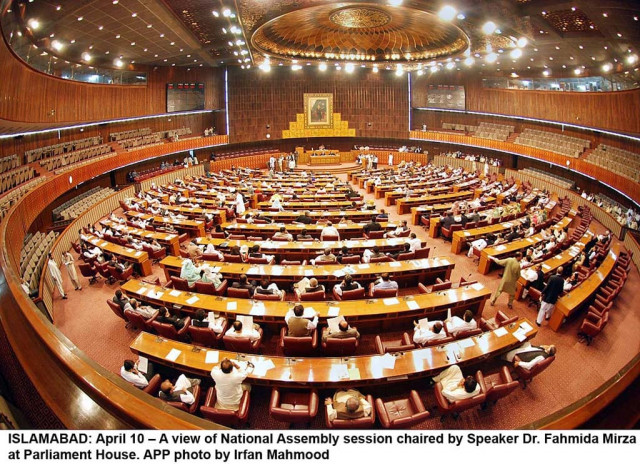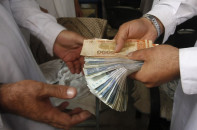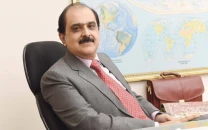Lax approach: Govt takes nine months to answer questions
Research report reveals Punjab, federal govt’s delayed responses to lawmakers’ queries.

Shocking as it may seem, but the average time taken by the provincial assembly to forward lawmakers’ questions to the home department is 20 days, the average time taken by the department to respond is 95 days, the average time taken by the assembly to table answers (by calling a session of the home department) is 153 days and the average total response time is 269 days (nine months).

Findings such as this and many others were revealed during a ceremony of the launching of a report titled ‘Civil Society and Police Reform in South Asia’ by the Centre for Peace and Development Initiatives (CPDI) at a hotel on Tuesday.
The research examines legislative oversight of the police by looking specifically at the question-hour sessions of the Punjab and the National assembly. The speakers included former police officer Dr Shoaib Suddle, MPA Ayesha Javed of PML-N and Humaira Masihuddin, a criminology consultant.
It was revealed that during the first parliamentary year, the Punjab Assembly responded to 1,210 starred questions from the total of 2,757 questions admitted. A total of 19 starred questions pertaining to policing were brought on the floor of the house, of which 16 (84.2 per cent) were responded to.
Questions directly associated with the police have strong implications on law and order in the country and they should be addressed on a priority basis but the process to get a response to questions was observed to be extremely slow, stated the report.
“If you put a question today, at best you’ll get the answer after nine months. Who remembers and what relevance is left of it then,” questioned Suddle.

Javed said the Q&A session was the most important part of assemblies but many legislators remain absent, saying they are busy in their constituencies.
On the delay, she said one should expect this sort of result when the assembly does not meet for several months, adding that relevance of the questions dies down after several months.
“Sometimes, we are under pressure from our own party members asking to withdraw a particular question,” she revealed.
Masihuddin said the district courts in Islamabad remained under attack for 45 minutes (in March this year) where 11 people were killed and 25 others were injured but not a single question was raised regarding this by the local representative, Asad Umar. In her opinion, the provincial assembly was vigilant as compared to the National Assembly as the latter asked ‘disappointing questions.’
National Assembly
There were 11 sessions of the National Assembly during the first parliamentary year, where 8,660 starred and un-starred questions were received, stated the report, adding that of these 2,703 (31.2 per cent) questions were answered.
There were a total of 58 questions related to policing that were scheduled to be answered during the year and of these, only 39 were unique or first timers, while the rest were repeated once, twice, thrice or even four times to get a response.
The highest number of questions asked were pertained to police administration (12), followed by 10 questions seeking general information and six covering areas of police reform and legal framework. In the first year of Parliament, 35 questions (89.74 per cent) were answered out of the 39 unique questions.
A total number of 58 questions came up on the floor of National Assembly for responses and of these, 33 were asked by female parliamentarians and 25 by male parliamentarians. A total of 35 out of 58 questions responded to, 18 were asked by female parliamentarians and 17 by male parliamentarians.
Under the category of party-wise number of questions, it was revealed that the PPPP’s parliamentarians submitted 19 questions out of which 10 (52.6 per cent) were answered. PML-N’s parliamentarians submitted 15 questions out of which 10 (66.6 per cent) were answered while MQM’s parliamentarians submitted 14 questions of which six (42.85 per cent) were responded.
Published in The Express Tribune, November 26th, 2014.



















COMMENTS
Comments are moderated and generally will be posted if they are on-topic and not abusive.
For more information, please see our Comments FAQ